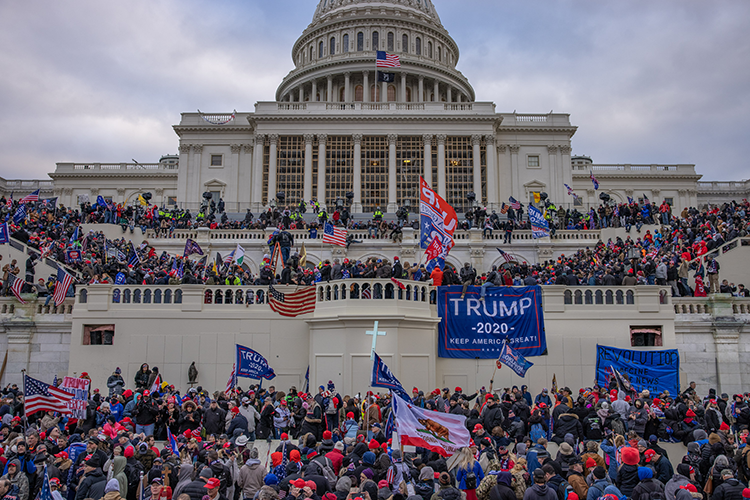Who's the pirate? Lawyers join forces to fight allegedly bogus claims of pay-TV theft
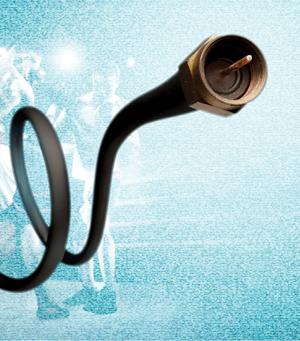
Photo Illustration by Stephen Webster
The 8 Ball tavern in the small town of Cotati, California, sometimes gets phone calls from people who claim to be with the gas or electric company or the IRS or some such, saying, “Pay us money you owe, or we’ll shut down your business.”
“We tell them we’re not interested and hang up, because we’re used to scammers,” says 8 Ball co-owner Rick Gorell.
So, when he received a letter from a Pasadena lawyer demanding money to settle a claim for showing his patrons an unauthorized televised pay-per-view fight, Gorell threw it away.
“I knew it was just another scam,” he says, taking a moment from preparations for the lunch crowd, a blend of students at Sonoma State University, workers from nearby vineyards and others of various white- and blue-collar persuasions.
When a second demand letter came a month later from the same lawyer, Gorell took it seriously. An 8 Ball regular who is a lawyer looked it over and sent a reply, asking for proof that the bar showed the fight. It was a one-off pushback like a lot of lawyers do for friends, hoping the matter ends there.
The response was a lawsuit for $170,000-plus against the 8 Ball’s owners, Gorell and John Graham, filed on behalf of J&J Sports Productions, which licenses the rights to show prize fights. Gorell and Graham soon found they were in the company of many others hit with lawsuits that allege TV signal piracy; and, like them, they were scratching their heads in disbelief, unsure of what to do.
The lawyer, Thomas P. Riley, operates in a narrow-but-deep practice niche, making demands of similar small businesses, often owned by foreign-born proprietors who vary both in their facility with English and their ability to afford a legal defense. Opposing lawyers describe Riley’s litigation style as unrelenting, aggressive and abrasive.
In scenarios similar to the 8 Ball’s, thousands of small businesses and do-good organizations like Elks and Moose lodges—even American Legion posts—have been caught up with private lawyers who pay armies of freelance investigators to go into establishments and document pay-per-view theft.
For a small business, such a lawsuit could be a death knell. According to Marc Libarle, a San Francisco lawyer who is defending the 8 Ball and one other business, yielding to Riley’s demand would cost at least $6,000 once the boxing distributor and opposing lawyers were paid. But demands can run as high as $40,000, and going to court would risk strict liability damages, as well as costs and attorney fees.
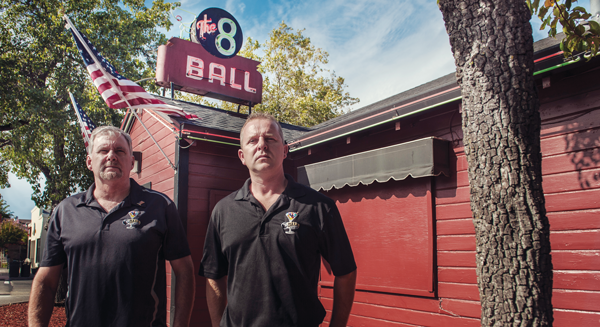
Rick Gorell (left) and John Graham, are the targets of a lawsuit alleging they showed patrons a boxing event they didn’t have the commercial rights to show. Photograph by Jayms Ramirez.
But defense lawyers like Lisa Clay of Chicago and Susan Wright of Dallas are raising serious ethical questions about the vetting and supervision of the investigators, who are paid only when they produce affidavits that swear they witnessed TV signal piracy.
The 8 Ball’s owners learned of the suit—even before they were served with papers—when they got a solicitation letter from a lawyer, Matthew Paré of Chula Vista, California. He culls federal court dockets for potential clients, then negotiates with Riley on their behalf.
But the 8 Ball’s owners were certain they had not shown a televised fight, so they wanted a fight with Riley.
“We didn’t want to pay thousands of dollars to settle a case when we didn’t do anything wrong,” Graham says.
A REAL PROBLEM
To be clear, plenty of businesses illegally show cable or satellite TV broadcasts, including premium channels such as HBO and Showtime, as well as pay-per-view events. One distributor said in a court filing that he is losing millions of dollars to piracy, although the figure is impossible to quantify. Therefore, vigilant anti-piracy efforts are an effort to stanch the flow of lost revenues.
But lawyers who try to help some of these businesses, often mom-and-pop shops, say they think the anti-piracy business model might be less a deterrent than a revenue source—through demand-letter settlements and default judgments in federal courts. They say that the cases often are built on questionable evidence, and that too many are simply unfounded.
“We believe they’re reaping a windfall from this litigation, or just from the threat of it,” says Trevor McCann, a Concord, California, lawyer who downloaded 14,000 pages from Westlaw to help build a spreadsheet to fashion attacks on flawed anti-piracy claims.
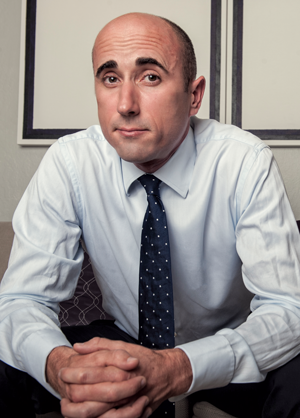
Trevor McCann is a lawyer who downloaded 14,000 pages from Westlaw to help build an attack on flawed anti-piracy claims. Photograph by Jayms Ramirez.
Aside from prelitigation settlements, a huge and ever-growing number of default judgments exist in the federal court system, which McCann and other lawyers involved think has become an unwitting collection arm. Awards from those judgments range from a couple of thousand dollars to tens of thousands.
A PACER search shows that Riley alone is involved in thousands of cases in federal courts in several states. He represents mostly televised sports-event licensing distributors, such as J&J Sports Productions. Those court cases might be just the tip of the iceberg: Opposing lawyers say it is likely that a greater number of businesses settle on the initial demand letter—payments that don’t show up in any public record.
Then there is the problem of incentives. Investigators in these cases are paid only after they produce a potential case, receiving as much as $650 per hit. According to a contract sent by Riley’s office to a prospective investigator, “compensation is performance-oriented” and lists a la carte payment amounts for various specific proof. The basic requirement is an affidavit attesting to having viewed the programming and two color photos of the establishment’s exterior. But investigators can receive extra payments for further proof, such as copies of liquor licenses or videos that show the program on the TV of a business.
Many of the investigators in these cases are not licensed professionals, though their affidavits typically imply that they are. And they have to spend only a few minutes in a bar or restaurant to document piracy; thus several hits can earn a lot of money for an evening’s work. But no hit means no pay, leaving an incentive to manufacture a case.
Questionable anti-piracy cases can occur for several reasons. Sometimes businesses are given residential accounts mistakenly, leaving them open to liability for showing programs, such as pay-per-view and specials, for which commercial customers must pay significantly more. Although pricing has evened out in recent years, lawyers who defend these cases say it was not uncommon several years ago for businesses to be given residential accounts instead of the more expensive commercial ones for cable or satellite. The customers often didn’t know they had the wrong kind of account, but the providers did—possibly motivated to beat a competitor’s pricing.
Marc Bragg left his law practice in 2012 to open a bar called Sally and Henry’s Doghouse in San Diego, but he had to hit the law books again two years later when he was sued in the U.S. District Court for the Southern District of California by J&J Sports Productions and Joe Hand Promotions for showing two fights he bought through DirecTV, a satellite television provider.
Bragg says he didn’t know he’d been given a residential account. The installer offered a better price than Bragg had gotten from Cox Communications. Bragg thinks the lower price was derived from an installation made under the wrong kind of account. He countersued Joe Hand, the boxing distributors, as well as Riley. But he also sued DirecTV for having put him in that position. Though the bar has closed and Joe Hand has settled, the case still is pending.
In 2010, DirecTV entered a nationwide agreement to better police its third-party contractors, but Bragg thinks the misidentified installations still are routine. The third-party contractor who installed Bragg’s system had DirecTV logos on his uniform and van. “You can’t look at this ... area of town and not know that it’s commercial,” he says.
ACCOUNT ERROR
Bragg is not alone in thinking the confused installations were deliberate and routine.
“I estimate that about 50 percent of [these types of] cases involve a residential account in a commercial establishment, and the customer didn’t know that’s what they were getting,” says Chicago litigator Clay, who alleges that small-business owners were then targeted, particularly those with names that suggest they are foreign born. She believes foreigners were targeted because they would more likely be fearful of the judicial system in general—and less likely to have the will and resources to push back.
In March, Clay filed a proposed class action in the Northern District of Illinois as a counterclaim in the case G&G Closed-Circuit Events v. Castillo. The lawsuit, which she has been litigating for more than two years, now includes a third-party action against DirecTV and, more recently, Riley’s law firm. And in May, after she deposed Riley and two of his staffers—one of them a lawyer, Julie Dadayan, who has since left the firm—Clay added racketeering charges against both the boxing distributor and Riley’s firm.
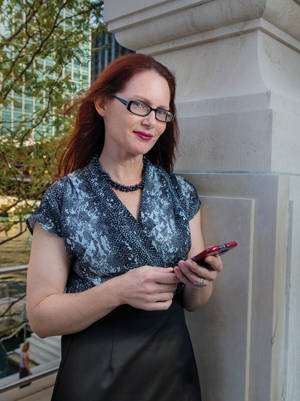
Lisa Clay, a defense lawyer in Chicago, estimates about 50 percent of the cases involve a residential account in a commercial establishment, and the customer didn’t know that’s what they were getting. Photograph by Wayne Slezak.
Attempts to reach Riley and Dadayan for comment were unsuccessful. In Riley’s case, he did not respond to a telephone message left at his office nor to an email follow-up. Weeks after those attempts, a managing director of FTI Consulting, a Chicago-based international crisis and issue management firm, called seeking to arrange an interview with Riley. But the interview never happened.
Clay’s class action suit details a “nationwide scheme and RICO enterprise whereby they use questionable means to entrap unsuspecting business owners and individual consumers” and “then extort money” from them.
The scheme, she alleges, takes advantage of the fact that DirecTV often provides residential programming to businesses. With the wrong kind of account, businesses that show any DirecTV program would be in violation, even if it were part of the package they bought. For example, if proprietors show an HBO or Showtime event—commonly, a non-pay-per-view boxing match—it sets them up to be sued by the licensing distributors as a violation of the residential package. Even if they properly order a pay-per-view event, the license is not valid because commercial account pricing is based on an establishment’s maximum capacity.
But some cases against the small businesses—maybe 10 percent, Clay estimates—are based on flawed, sometimes fraudulent affidavits by investigators.
BEFORE THE 8 BALL
Kim Lyell, the investigator who hit the 8 Ball, provided everything on Riley’s menu. But the investigative agency she listed as her employer apparently doesn’t exist, says Pat Hanley, an 8 Ball patron who has worked as a licensed private investigator in California.
“It’s phony on its face,” says Hanley, who dug into the details of Lyell’s affidavit and provided them to lawyers who represent the tavern’s owners. “She just made it up.”
Her documentation was similarly suspect. An alleged covert video snippet of the televised fight was an unrecognizable blur and shadow—until Hanley broke it down frame by frame and found a second or two of a basketball game. No boxing.
Hanley provided several more glaring omissions and errors. For example, Lyell swore she was at the 8 Ball in April 2012 for the main bout, Manny Pacquiao versus Timothy Bradley, but described only the undercard match. And the purportedly timely photos of the outside of the bar were taken in a different season than she reported. Moreover, co-owner Graham says, the 8 Ball has no subscription to HBO, and the bar was not billed for and did not pay for a pay-per-view event.
Lyell’s affidavit included one observation the 8 Ball owners agree with. She noted that the sound was turned down on the bar’s nine television sets and that none of the estimated 16 patrons, except her, was watching.
On her affidavit, Lyell listed a New Jersey phone number along with “Taylor & Associates” as the agency with which she worked. She is not registered as a licensed private investigator in New Jersey or California. And there’s no record of a PI business by that name in either state.
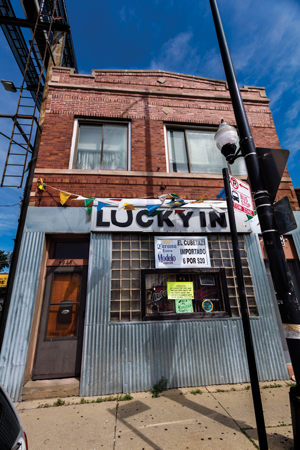
Photograph by Wayne Slezak
That New Jersey phone number has shown up on other courtroom affidavits, including in other states, going back at least until 2010. A call to that number was answered by a man who said he didn’t know who Lyell was but after a moment said, “Oh, you’re calling about an affidavit. We don’t know where she is. We tried to contact her, but she didn’t respond to our client.”
The number is registered in the name of Daniel Szlezak, and a Facebook page under that name lists jobs that include “private investigator at PI Taylor & Associates.” New Jersey state police say no private detective agency registered in the state goes by that name; and Szlezak is neither a licensed private investigator there, nor has he been registered as an employee of one.
The man at the end of the line declined to identify himself, his business or the client, saying, “I’d rather not discuss any of this.”
In a deposition, Lyell said that when she received the 8 Ball assignment, she was working as an “independent contractor” selling jewelry on cruise ships and working occasionally as a mystery shopper. (Mystery shoppers visit retail businesses and report on the quality of service.) After responding to an online forum for mystery shoppers, Lyell says, she received an email from someone named Robert Taylor in New Jersey and got two assignments from him. One was the 8 Ball.
Under questioning by Riley, she said Taylor told her the assignment would be similar to mystery shopping but involved TV piracy. She said when she checked Taylor out she found “he was a licensed investigator ... in New Jersey.”
When Libarle began his questions, Lyell said she had to leave town four days later to join a cruise ship in Barbados. Fred Olsen Cruise Lines records show the cruise she said she was joining was in Estonia, not Barbados. Moreover, Robert F. Taylor was identified as a prominent private investigator and a former president of the New Jersey Licensed Private Investigators Association. But that is not the Robert Taylor with whom Lyell dealt.
There is a Robert Taylor in New Jersey who has a company called “Taylor & Associates,” which is a member company of the Mystery Shopper Providers Association-North America. The group, which lists Taylor and gives his phone number, has an online forum on which he and others post possible assignments for mystery shoppers.
The only “Taylor & Associates” incorporated and registered with New Jersey’s Department of the Treasury is owned by a mortgage broker who has no relationship to Taylor, Szlezak or mystery shopping. And the licensed PI Robert F. Taylor says he never has heard of Robert Taylor PI, Taylor & Associates or Szlezak.

Marc Libarle is a San Francisco lawyer who is defending the 8 Ball. Photograph by Jayms Ramirez.
Riley advertises in many venues, mostly online, seeking licensed professionals as investigators or professionals who oversee unlicensed associates and vouch for their work. A 2008 ad was addressed to “private investigators/ detectives” with a requirement to be a “principal of a licensed agency, capable of providing surveillance services.” But it added that “your signature on a sworn affidavit is good enough for us and always has been.”
Riley enters agreements with subcontractors who then can hire and supervise unlicensed auditors or investigators. Using unlicensed professionals might be problematic in some states if their findings are likely to be used for litigation or prosecution. But it hasn’t been a big problem, says Jimmie Mesis, a PI who is the editor and publisher of PI Magazine.
“That technically might be crossing the line of conducting an investigation” that a state might consider the province of a licensed PI. “It can be a gray area,” Mesis says.
The New Jersey telephone number Lyell put on her affidavit for the “investigative agency” for which she works also was used by Szlezak in a 2010 affidavit. His exhibits and affidavit were the only evidence presented in a case brought in the federal court for the Eastern District of Pennsylvania in 2012. Riley got a default judgment for his client, Joe Hand Promotions. Although there was no challenge to Szlezak’s affidavit, the judge wrote a lengthy, scorching opinion critical of Riley and his approach. (See a sidebar about the decision.)
case law considerations
In a Chicago case that concerned the Lucky Inn bar, the proprietor paid a fee to show a boxing match, but she says she didn’t know her account wasn’t commercial. The original complaint said she stole the TV signal without paying for it, which likely would have held up for a default judgment, but she was represented by a lawyer patron.
Clay argues the laws on TV piracy suggest judges are not obligated to levy even minimum statutory damages, much less award enhanced damages. “I think the statute has been bastardized,” she says. “Judges shouldn’t just look to the statutory provisions cited by the plaintiffs.”
“There’s a huge body of case law on these defaults building on itself around the country,” she adds. “They’re targeting people who can’t defend themselves, and courts need to re-evaluate how they look at these cases because of that.”
That development of case law has been inconsistent and sometimes flat-out wrong, says California lawyer McCann: “Signal piracy law is like the Middle Ages, and defaults had a lot to do with it.”
Indeed, lawyers who defend these cases, often for little or no money, tend to feel like they’re on a crusade.
“We’re up against a business model,” says Clay. “The plaintiffs are capitalizing on the fees and costs of litigation. These people don’t give a rat’s ass about their licensing rights. They’re out to make money on this. And my clients can’t afford the fight. So I made a personal decision and don’t charge them. I don’t want to benefit from a system I feel is wrong.”
Clay and McCann began conferring earlier this year, and they were joined by Libarle, the lawyer in the 8 Ball case. And Clay recently developed a successful approach that has borne fruit for McCann: Serve the plaintiffs lawyer with a third-party subpoena that demands, among other things, detailed information about the lawyer’s staffing, office procedures and how the case was worked up in the office. When McCann filed such notice in March in federal court in San Francisco, Riley’s client settled.
Clay and McCann have developed another approach, which they intend to formalize with document templates: As soon as possible, file a Rule 11 motion that questions the most basic premises of the suits, which rarely provide many case-specific facts or documentation. Among the questions to be asked are:
- Why isn’t the distributor’s contract to sell the shows attached to the complaint? (When pressed, one distributor said in a declaration it was oral.)
- Where is the investigator’s affidavit? (The affidavit usually isn’t seen until a motion for summary judgment.)
- Where are the details or proof behind specific, high-dollar claims for enhanced damages?
- Was the alleged infringement from cable or satellite? (Separate statutes cover the type of distribution and provide different potential fines.)
FEE FEARS
More lawyers say they would like to fight these cases, but they can’t pull so many unbillable hours out of their practices, and they fear putting clients in jeopardy of strict liability and mandatory costs and fees.
“I’d love to represent someone economically situated well enough to take the risk of that statutory hammer and shove one of these cases down their throat,” says Chicago lawyer Timothy M. Murphy. He defended the 75-year-old Polish woman who runs the Lucky Inn bar, where he and his wife sometimes dine.
Despite paying Comcast Cable $59.99 to show a pay-per-view fight, the woman was sued by J&J Sports Productions. The demand letters came from Riley, but the suit was filed and litigated by a lawyer in a Chicago firm, Andre Ordeanu of Zane D. Smith & Associates, one of several law firms used in jurisdictions where Riley is not admitted to practice.
Because of the hammer, Murphy says, he settled the case just before trial last year, although for a fraction of the original demand.
He had planned to show the meager profits of the Lucky Inn; let his elderly client, Luba Orenkiewicz, speak for herself in limited English; and he figured he needed little more to win over the affidavit by investigator Peter M. Scurto, president of M.B. Scurto & Associates.
Like Taylor & Associates, Scurto’s company specializes in providing mystery shoppers. Scurto is not a licensed private investigator, although Riley’s advertisements typically say a PI license is required.
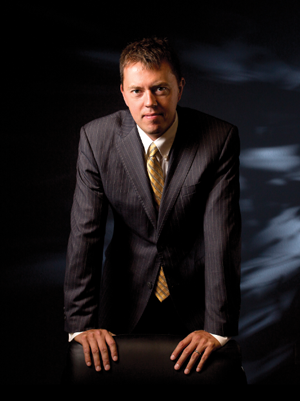
Matthew Paré specializes in defending TV signal piracy cases. Photograph by Earnie Grafton.
Scurto’s affidavit contained significant errors: providing the wrong name for one of the boxers and identifying the Lucky Inn bartender as a man, when the proprietor says she never has had a male employee. Murphy knows the place well enough to say the headcount given in the affidavit is inflated by multiples. On the night in question, the Lucky Inn’s gross revenues were $337.
Shortly before the scheduled trial in March 2015, Murphy says, Ordeanu emailed him an additional exhibit, well after discovery ended, saying somehow it wasn’t in the original package in discovery. But Murphy noticed immediately that it was a revised version of one he’d received earlier, and now it had the boxer named correctly. It was notarized and had the same date as the original affidavit: May 7, 2012.
“This last-minute, shameless attempt to alter evidence makes clear the exact value of Mr. Scurto and his affidavit as evidence: precisely zero,” Murphy wrote in his trial brief.
Neither Scurto nor Ordeanu responded to interview requests.
BREACHED AGREEMENT?
In 2010, because of widespread abuses by third-party contractors, among other problems, DirecTV entered a settlement agreement with all 50 states and the District of Columbia. The company paid a $13.5 million penalty and promised remedies, including better oversight of the contractors. And lawyers for businesses swept up in anti-piracy efforts have filed counterclaims alleging breaches of that agreement.
“DirecTV knew installers were putting residential setups in these small businesses and told them to go ahead and do it,” says Wright, the Dallas litigator, who has about 20 such clients in state courts in cases brought by Julie Lonstein, Riley’s significant competitor in New York. Lonstein declined to be interviewed for this article.
Wright has alleged in pleadings, based on discovery, that DirecTV knew residential accounts were being set up in businesses and approved of it or did nothing to correct the problems. She deposed an installer who said it was simpler to do residential installations. And those residential accounts are maintained for years until Riley, Lonstein or other lawyers send in their investigators.
“We’re declining comment, but thanks for reaching out,” wrote Robert G. Mercer, at the time the senior director of public relations at DirecTV, in an email response to a request for an interview.
But questions are coming more frequently as defense lawyers are collaborating. And lawyers in California and Illinois have alerted their attorneys general of possible violations of the 2010 agreement.
The 8 Ball tavern likely will end up filing a countersuit for malicious prosecution, Libarle says. And his client Graham does not fear the hammer of costs, fees and strict liability.
“I’m not in this for money,” Graham says. “I want to expose the problem and make it easier for others to expose this BS.”
This article originally appeared in the September 2016 issue of the ABA Journal with this headline: “Who’s the Pirate? Lawyers join forces to fight allegedly bogus claims of pay-TV theft.”
Write a letter to the editor, share a story tip or update, or report an error.
